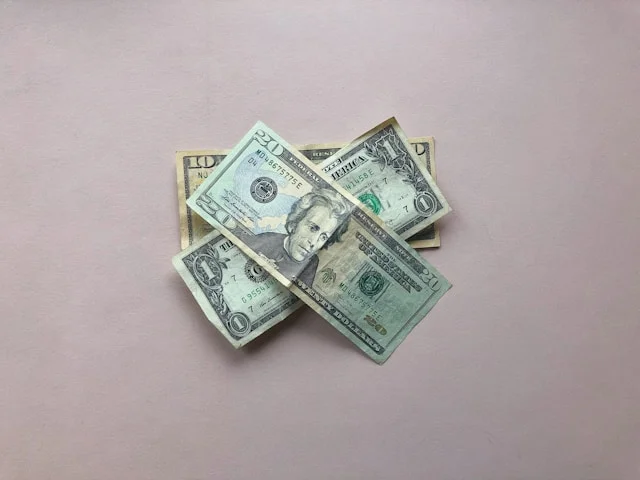
Debt has a way of sneaking up on you. One month you put a few extra charges on your credit card. The next month, you miss a payment. Before long, you’re juggling multiple balances, high interest rates, and minimum payments that barely scratch the surface. Getting into debt can happen fast. But getting out? That can feel like trying to climb a mountain with no end in sight.
If you’re staring at your credit card statement or worrying about title loan interest rates stacking up on top of everything else, you’re not alone. That’s often the moment people start to wonder about debt consolidation. But is it the right move? Let’s walk through how to figure that out.
What Debt Consolidation Actually Means
Debt consolidation is pretty much what it sounds like. You take several different debts and combine them into one new loan. Instead of paying multiple creditors every month, you make just one payment to a single lender. This new loan typically has a lower interest rate than your existing debts, which can help you pay off your balance faster and save money in the long run.
For example, you might take out a personal loan with a lower rate to pay off your credit cards, medical bills, or even payday loans. Some people also use home equity loans or balance transfer credit cards to consolidate debt. The key is finding a solution that actually improves your situation rather than simply shifting your debt around.
When Consolidation Makes Sense
Debt consolidation can be a smart move if you’re dealing with high interest rates and struggling to make real progress on your balances. If most of your payments are going toward interest and very little toward principal, consolidation might give you some breathing room.
It’s especially helpful when you have multiple debts with different due dates and payment amounts. Combining them into one loan simplifies your finances. One payment. One due date. Less mental juggling.
Also, if you have a good credit score or have improved your score since you first took on the debt, you may qualify for a much better interest rate now. That lower rate can make a huge difference in how quickly you pay off your debt.
When Consolidation Might Not Help
Debt consolidation isn’t a magic fix. If your spending habits haven’t changed, consolidating your debt could actually make things worse. Some people feel so relieved by the lower monthly payment that they start using their credit cards again, racking up new debt on top of the consolidated loan. That’s how the cycle continues.
Also, if your credit score isn’t strong enough to qualify for a lower interest rate, consolidation may not offer much of a benefit. You could end up with a loan that costs you just as much or even more than your current debts.
Finally, watch out for fees. Some consolidation loans come with origination fees, balance transfer fees, or prepayment penalties. Always read the fine print.
The Emotional Side of Consolidation
Most people don’t talk about the emotional weight of debt, but it’s very real. Stress. Anxiety. Embarrassment. Feeling like you’ll never dig your way out. Consolidation can help relieve some of that emotional burden by giving you a clear, structured path forward.
Having just one payment to worry about can make the process feel more manageable. It can give you hope that you can actually see the finish line instead of feeling stuck in an endless loop of payments that go nowhere.
The Warning Signs You Might Need to Consolidate
So how do you know it’s time to seriously consider debt consolidation? Here are a few red flags:
- You’re only able to make minimum payments every month
- Your total debt feels like it’s growing, not shrinking
- You’re juggling multiple bills with different due dates
- High interest rates are eating up your payments
- You’ve tapped into high-risk loans like payday loans or title loans with sky-high interest rates
- You feel overwhelmed and can’t see a way out
If several of these sound familiar, it’s worth exploring consolidation as one possible solution.
Other Alternatives to Consider
Before you jump into consolidation, take a look at your full range of options. Sometimes, calling your creditors directly and asking for a lower interest rate or a structured repayment plan can help. Credit counseling services can also work with you to create a budget and negotiate with lenders.
In some cases, a balance transfer credit card with a 0% introductory rate might offer short-term relief if you can pay off the balance before the promotional period ends. Just be careful with balance transfers because they usually come with fees and high interest rates once the promo ends.
A Fresh Start Is Possible
The idea behind debt consolidation is to give you a fresh start. But it only works if you approach it with a new mindset. Once you consolidate, it’s important to create a solid budget, track your spending, and build up savings so you’re not forced into debt again the next time life throws you a surprise expense.
Consolidation can be a helpful tool when used wisely. It’s not about escaping responsibility but about giving yourself a structured, achievable plan. With focus and discipline, you can use consolidation to take back control of your finances and finally break free from the endless debt cycle.

How Professional Book Publishing Services Help Authors Reach More Readers

Strategic Marketing Solutions for Modern Businesses

How Traffic Management Businesses Are Improving Field Accountability

How BRSR Reporting Software Is Transforming Corporate Sustainability Reporting In India

Discover Stylish Plastic Disposable Plates for Family Dining

How Professional Book Publishing Services Help Authors Reach More Readers

Strategic Marketing Solutions for Modern Businesses

How Traffic Management Businesses Are Improving Field Accountability








